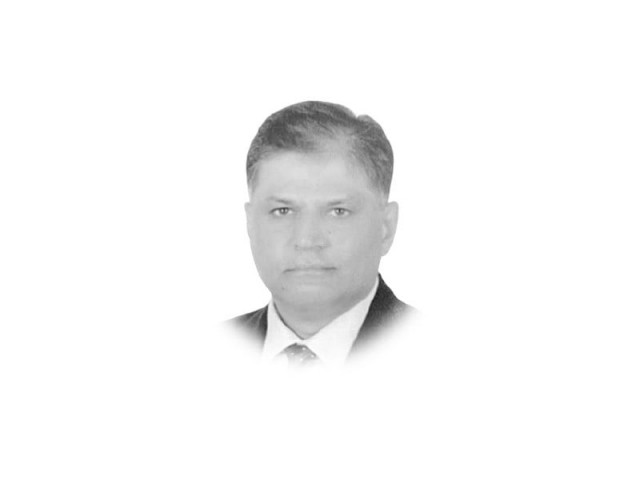Pakistan's moral and rational decay
Lying and deception erode Pakistan's moral fabric, challenging its ethical integrity and societal trust.

Humans are uniquely endowed with the ability to make choices, often favouring rational ones over irrational ones. However, choices can conflict, gradually eroding one another until individuals or societies reach a tipping point where morality and rationality lose their significance. In Pakistan, we seem to have crossed this threshold, collectively living in falsehood and deceiving others through cognitive manipulation to align with desired self-images.
Lying and deception have permeated our social fabric, besides deception serving as a survival mechanism not only for humans but also for many other species. While nearly all life forms instinctively employ deception, humans alone possess the capacity for moral self-reflection and ethical choice. Darwin observed that humans uniquely experience guilt and shame, signifying their ability to evaluate themselves through others' eyes. These emotions act as a moral compass that distinguishes us from other species (Botto et al, 2019). Unfortunately, this compass appears broken in Pakistan, as lying and deception corrode our social fabric.
The foundation of human society relies on social communication and a shared reality, which are essential for human bonding (Baumeister and Hutton, 1995). However, this trust is deeply undermined by lying and deception. Philosophers have long debated the morality of lying. While Socrates and Plato defended "noble lies" for societal harmony, Kant and Freud considered lying inherently harmful. Freud further explained that every time we lie, our value system and principled conduct, which enable our capacity for moral and rational choices, are corrupted, eroding part of who we actually are. Modern thinkers like Bok (1978) and Stouthamer-Loeber (1986) argue that deception destabilises social structures, leading to widespread consequences. Painfully, these consequences are evident in Pakistan: lying and deception pervade daily life and governance.
Studies reveal that lying begins as early as two-and-a-half years old, evolving from simple misrepresentations to more complex forms of manipulation (Fu & Ding, 2018). As individuals grow, lies transition from "prosocial" to "antisocial", with adults learning to deceive more skillfully. Over time, deception becomes a way of life, particularly in societies where self-accountability and trust are weak. This pattern is evident in Pakistan, from trivial acts of dishonesty such as excuses for tardiness to professional misconduct in business and shameful politics.
While lying and deception are often used interchangeably, their impact on human well-being differs. Lying is cognitively taxing and evokes guilt, whereas telling the truth requires no impression management (Brinke & Porter, 2012). Conversely, deception involves the strategic manipulation of truth, which is damaging, cognitively challenging and emotionally taxing, often leading to guilt and anxiety (Zuckerman & Sarkadi, 1998). These behaviours manifest in various ways: professionals flatter superiors or shift blame, businesses prioritise profit over ethics, and politicians craft false narratives to mislead the public to obtain ill-gotten gains at the expense of public welfare and national progress. Pakistan's pervasive lying and deceptive behaviours may not have had immediate effects, but over time, they have eroded moral and rational choices, culminating in the nation's ethical decay.
Humans are uniquely capable of making "promises" (wada) to build trust. However, the practice of breaking promises is widespread in Pakistan. These breaches erode relationships and public faith, whether in personal interactions, business dealings or governance. This decline reflects a broader moral crisis, where "trust-based" activities (amanah), the backbone of any civilised society, are frequently and significantly violated for convenience or personal gain.
Emotional responses to lying and deception vary by gender. Men often lie for self-interest, while women lie to preserve relationships. Both genders experience guilt or distress when deceiving the opposite gender, but women show less remorse when lying to other women (DePaulo et al, 1996). In Pakistan's male-dominated culture, self-centred deception is particularly prominent, further normalising unethical behaviour.
Self-deception, the act of misleading oneself, carries grave consequences. As the saying goes, "The easiest thing of all is to deceive oneself", but it is also the deadliest form of deception. Sociologist Lewis (2015) suggested that "self-deception corrodes moral clarity, as people justify wrongdoings without accountability. It blinds individuals to their faults, preventing growth and wise decision-making. On a societal level, self-deception fosters a collective disregard for laws and ethics.
Pakistan's sab chalta hai (anything goes) mentality epitomises a society desensitised to right and wrong. Expressions like goli dey dee (evading responsibility), topi penha dee (fooling someone), and truck kee batti kay peechhay laga deya (misleading with false hopes) illustrate the societal normalisation of dishonesty. This pervasive mindset affects everything from daily interactions to state governance. While technology and media accelerate these trends, the root cause lies in the longstanding erosion of the country's ethical standards.
The character and conduct described here reflect a society at a crossroads: one either on the path to redemption or steeped in hypocrisy. Pakistan's moral and rational decay is painfully evident in global rankings - 100th worst passport, 47th most corrupt nation, and 13th lowest in rule of law. Psychologist Warren notes, "We deceive ourselves because we lack the psychological strength to admit the truth and change once the truth is acknowledged." Accountability lies with all societal pillars: citizens, politicians and state institutions.
Pakistan's path to redemption requires practical reforms in justice, education and wealth distribution. A cultural shift is needed to revive the capacity to discern truth from falsehood, empowering citizens to make ethical choices rooted in religious, cultural and historical values. Only through courage and honesty can Pakistan reclaim its ethical integrity and restore its dignity among nations.
This critique is not a call for pessimism but a reminder of our shared ethical responsibilities to form a just society and leave it for our future generation. We must choose between embodying sadiq (truthful) and ameen (trustworthy) or embracing the traits of a munafiq (hypocrite). As our beloved Prophet (PBUH) said, the munafiq has three signs: when he speaks, he lies; when he makes a promise, he breaks it; and when entrusted with responsibility, he betrays it. These traits demand introspection before it is too late. I respectfully invite readers to contemplate what awaits the munafiq in the eternal abode.





1729685382-0/Untitled-design-(57)1729685382-0-208x130.webp)










COMMENTS (3)
Comments are moderated and generally will be posted if they are on-topic and not abusive.
For more information, please see our Comments FAQ